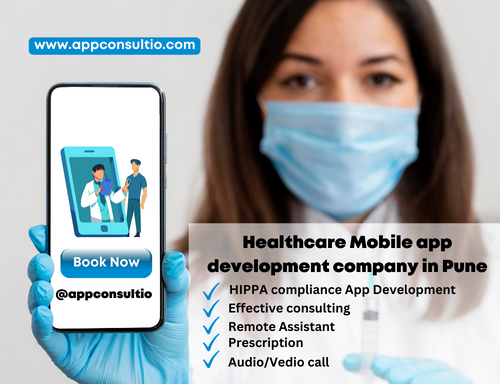
How has mobile app development transformed the healthcare industry?
The development of mobile apps has undoubtedly transformed the healthcare sector by offering novel, creative solutions. In addition to enhancing patient care, this also promotes efficiency and raises patient involvement. Healthcare app development is now essential in the healthcare industry due to its numerous advantages to patients and healthcare practitioners. Healthcare professionals can offer patients high-quality care in a more time- and cost-effective way by employing app technologies.
Thanks to smartphone apps, patients may interact with their healthcare providers, check their health records, set up appointments, and receive medication reminders. Patients can use health apps to track their nutrition and exercise habits. It may aid in their continued health and better chronic condition management.
Healthcare providers can efficiently optimize communication with the use of mobile apps.
In addition, mobile apps have enabled healthcare providers to streamline their workflows, automate repetitive tasks, monitor schedules, and securely communicate patient data. It has helped health professionals save time, reduce errors, and enhance the quality of care.
In addition, telemedicine services, which allow patients to obtain medical advice and treatment remotely, are now available to health practitioners. Providing patients with remote access to health services has become critical during the COVID-19 pandemic.
What benefits do the healthcare sector and patients get from mobile apps?
Patient care has improved because mobile apps make it simpler for patients to communicate with their doctors, access their medical records, book appointments, and receive prescription reminders. To maintain their health and better manage chronic diseases, patients can also utilize health apps to track their levels of exercise and nutrition.
Healthcare practitioners can use mobile apps to improve workflow and operations. Can use applications to securely communicate patient information, coordinate schedules, and automate tasks. It can help healthcare professionals get more done quickly, make fewer mistakes, and provide better care.
Telemedicine services enable patients to obtain diagnosis and treatment remotely and are now available from health professionals. Isn't it comfier now?
Healthcare practitioners can interact with patients and improve their health using mobile applications. Healthcare providers giving individuals tools to track their progress, individualized health information, and educational resources is the ideal example of an app. It can help patients who are interested and motivated in their care.
In conclusion, mobile apps are a fundamental requirement in the healthcare industry to enhance the patient experience, and good health, reduce costs and improve patient care. Due to the growing need for healthcare services and the prevalence of mobile devices, mobile applications have become necessary for healthcare practitioners to provide high-quality patient care.